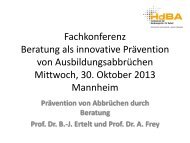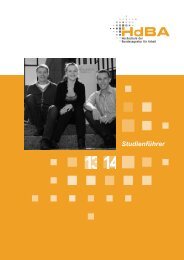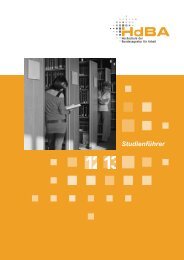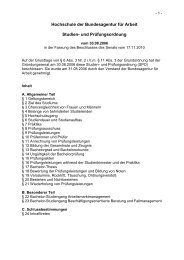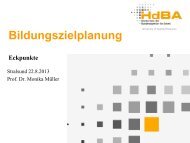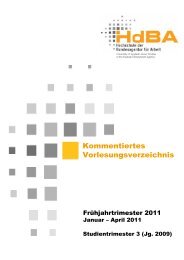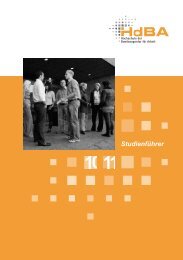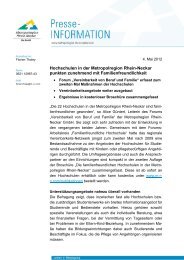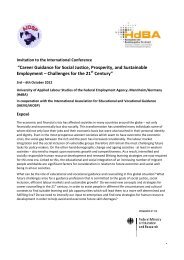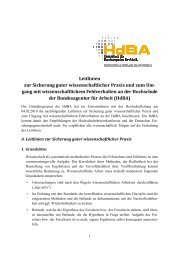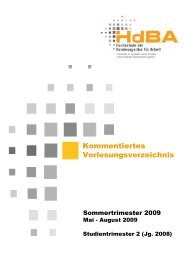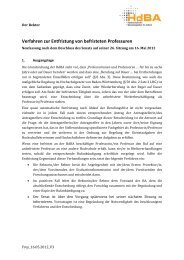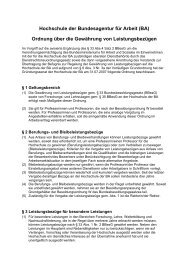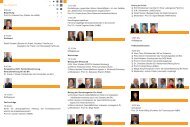Brain Drain - Hochschule der Bundesagentur für Arbeit
Brain Drain - Hochschule der Bundesagentur für Arbeit
Brain Drain - Hochschule der Bundesagentur für Arbeit
Create successful ePaper yourself
Turn your PDF publications into a flip-book with our unique Google optimized e-Paper software.
���������������������������������������������������<br />
���������������������������������������<br />
�<br />
�<br />
4 "Increase opportunities for an exchange of information between those with<br />
quantitative training in instrument development and those with an interest<br />
and expertise in multicultural issues." Currently there is little overlap in these<br />
two groups. Helms (1992) felt it was important not to assume that there are<br />
enough professionals of colour to do this work. Many individuals from majority<br />
racial and cultural groups will need to develop such measures as well.<br />
Conventions, workshops, co-authored articles, and curricular reform in graduate<br />
programs are but a few examples of what could be done.<br />
After everything said so far we will quote Brown and Brooks (1990, p. 172) who see<br />
the alternative for assessment in counselling in using informal diagnostic methods.<br />
The reliability of these tests is strongly dependent on the mutual trust and the<br />
possible culture stereotypes of the counsellor. Prejudice and biased interpretation<br />
may be also very influential. If the requirements and conditions for using informal<br />
methodologies are kept they can give an essential direction of the counsellor’s work.<br />
The possibility of avoiding cultural context when using informal methodologies<br />
originates from the facts that:<br />
• the requirement in implementing them are not strict and the BD- BG counsellor<br />
can explain and answer the client’s questions at any time<br />
• good knowledge of ethnos and culture specifics of the client can help the BD-BG<br />
counsellor in applying cases, giving exercises for ability measurements, lists of<br />
interests, qualities, skills, etc. as well as to comply the interpretation of the results<br />
with the cultural specifics of the client.<br />
Among the mostly used instruments for assessment of representatives of different<br />
ethnical groups are:<br />
• Work samples<br />
• Picture tools<br />
• Computer applications<br />
• Visualisation<br />
To summarize we can point out the following conclusions:<br />
Assessment is an important stage of the counselling process. Many different<br />
methods for ability measurements and interest assessments are created and<br />
generally divided into formal and informal. Both types of methodologies implemented<br />
in multicultural context will lead to a distortion of the results and specific interpretation<br />
because the behavioural model of the clients and the obstacles they face differ in<br />
accordance with their background culture.<br />
Although the multicultural context theme for ability measurements and interest<br />
assessments is more often discussed in counselling, the development of<br />
standardised test to be used in multicultural context is still an issue needing further<br />
development.<br />
156



